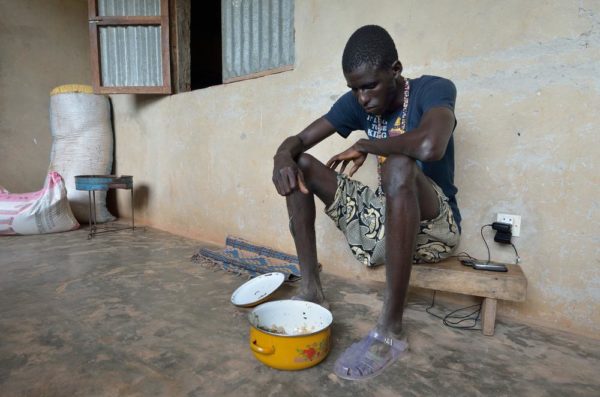Features
Nathan Sogo: Why Are We So Poor?
 There can be no argument about the topic which implies that the Nigerian economy is not working for majority of Nigerians. The economy is not working for the poor, students, and people residing in the rural communities, the physically challenged, and the old ones also worse for the unemployed, In Nigeria, there is the issue of youth and employment. 70 per cent of the 80 million youths in Nigeria are either unemployed or underemployed by the statistics given by the Central Bank of Nigeria. Although the recent World Bank report that Nigeria’s poverty level has dropped by 2.1 per cent, this doesn’t change the fact that most Nigerians are poor. Little wonder we pray for peace and security without any answers, in a nation in which there are one hundred million people living in poverty? It is highly unlikely. It is impossible for Nigeria to enjoy sustainable peace or law and order until we address the unbalanced economic growth that creates billionaires in few and poverty and unemployment in hundreds of millions.
There can be no argument about the topic which implies that the Nigerian economy is not working for majority of Nigerians. The economy is not working for the poor, students, and people residing in the rural communities, the physically challenged, and the old ones also worse for the unemployed, In Nigeria, there is the issue of youth and employment. 70 per cent of the 80 million youths in Nigeria are either unemployed or underemployed by the statistics given by the Central Bank of Nigeria. Although the recent World Bank report that Nigeria’s poverty level has dropped by 2.1 per cent, this doesn’t change the fact that most Nigerians are poor. Little wonder we pray for peace and security without any answers, in a nation in which there are one hundred million people living in poverty? It is highly unlikely. It is impossible for Nigeria to enjoy sustainable peace or law and order until we address the unbalanced economic growth that creates billionaires in few and poverty and unemployment in hundreds of millions.
Why is this so?
There are major issues arising from our economy i.e. the control of Gross Domestic Product (GDP) by only three sectors of the economy: petroleum and natural gas, agriculture, trade; the government’s expenditure on repeated expenses of politics and public service which doesn’t provide employment for a large percentage of Nigerians; the influence of our oil and gas sector by less productive public sector; the structure of our financial sector which does not include the emerging Small, Medium and Micro Enterprises in financing through loan facilities, provision of mortgages and housing for citizens.
The results of the dependency of the economy on these sectors has limited the exploration of other sectors which has increased poverty and unemployment. Potential sectors such as manufacturing, solid minerals, fashion, building and construction, real estate etc. are either very small in size or have very low growth rates. Sectors like telecommunications which are fast growing do not employ in large numbers.
The shortfall in electricity supply is one of the reasons why we haven’t been able to create sustainable industrialization especially in areas such as manufacturing, mining, modernized agriculture, agro-processing and agro-allied industry, and construction. Nigeria presently generates 4,502 megawatts of electricity and we are hoping to reach 7,000 megawatts of electricity by the end of the year (amen) compared to our African counterparts, Egypt’s 24,000MW and South Africa’s 40,000MW which is our vision 2020 dream! Other factors such as poor transport infrastructure, poor security, water, postal, immigration, etc. all of which in addition to the cost of alternative power generation raise the cost of operations for our businesses and becomes discouraging.
Our education system places insufficient emphasis on quality, skills and competences i.e the educational system does not promote economics, management and entrepreneurship education which destroys innovation and creativity that is supposed to foster student’s own independent learning and creative thinking. In Northern Nigeria, the willful exclusion of millions of young people from modern education and skills is a guarantee of large scale poverty and is now a threat to national security.
What can be done to ameliorate this situation?
We must diversify our economy away from rents from oil, into a productive economy based on manufacturing, transportation, mining, agriculture and construction, amongst others, a proper structure of the financial sector to render it capable and willing to lend to SMEs. A drastic reduction in the cost of governance in running of the governance. Also industrialization is achievable by improved electricity supply, transport infrastructure, low interest rate and inflation, better public services including security, water, postal, ports, immigration and customs and constant tax review. Adequate monitoring of the power sector following the completion of National Integrated Power Project NIPP privatization to maximum effectiveness. Government must also consider the provision of unemployment support for the unemployed populace.
Finally we must embrace a stronger enforcement theory of abolition of corruption rather than a lip service approach and our leaders and aspiring leaders must be prepared to fight corruption at every level of governance.
Photo Credit: Dreamstime| Djembe

















